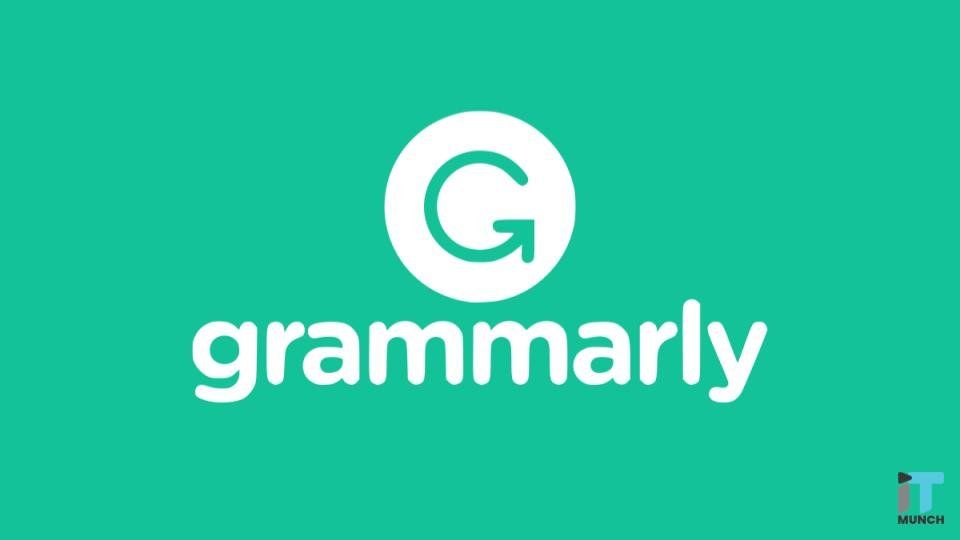Why I would not use Grammarly
Charlotte Booth • 10 June 2021
Data security and Grammarly

I am regularly asked whether Grammarly is a good tool to use for ensuring that content written for your business is grammatically correct.
This is a difficult one to answer as even a sophisticated AI tool like Grammarly isn’t going to replace a professional proofreader when it comes to picking up the nuances of the language. How likely is a tool going to point out an error with “I have little time,” or “I have a little time”? Indeed, which one of these is wrong? Grammatically neither, but within the context of the text one of them is. There is however, little doubt that Grammarly can help to ensure your writing is grammatically correct and reads well.
But I still wouldn't use it.
Data Security
The problem with Grammarly (and other similar tools) is not about missing nuances of the English language - it concerns data security.
Grammarly works by installing a plugin to your Chrome browser, and it then reads and can change whatever you write to something more grammatically correct. Through the use of AI it scans common language use and therefore whether certain phrases are acceptable, checking your work in 'real time'.
As a Chrome plugin in order to work and develop it requires full access to your keyboard. This means everything you type gets sent to their servers and stored. Let that sink in.
Although the data is encrypted, before installing the plugin you have to agree that the extension will: “read and change all your data on the websites you visit,”
which should raise some alarm bells. It is possible to go into the settings to make sure that the application only works when ‘activated’ but still, if you forget to do that everything you type (e.g. bank details, passwords) and everything you delete is sent to the Grammarly servers in the USA and stored.
What Are You Agreeing To?
Before making the decision to use Grammarly it really is advisable to read through the privacy policy. It makes sobering reading.
“When you interact with our Site, Software, and/or Services, we collect information that could be used to identify you (“Personal Data”). Some of the information we collect is stored in a manner that cannot be linked back to you (“Non-Personal Data”).”
So, whilst they tell you some data is stored in a way which can't be linked to you, it implies that some is stored in a way that can be.
The Grammarly keyboard may also require, “access to your contacts' names on your device. For instance, Grammarly will not try to autocorrect names that are in your contacts.” These names, are not however, sent to the servers, but access to them has been given to a third-party which could raise GDPR concerns if your contacts contain client details. Even emails are protected under the GDPR guidelines and giving access to a third-party could breach them. Grammarly states:
“Grammarly complies with the EU General Data Protection Regulation (GDPR). Where required, we will provide international data transfer mechanisms, such as standard contractual clauses, for our business customers.”
But what about the majority of users who are free subscribers, not paid for business customers? Just by sharing data which Grammarly could access could be a breach, so using Grammarly on a work-related device really isn’t advisable.
Questions also have to be raised as to how safe your data is once it is on the Grammarly servers, and although the data is encrypted, again the privacy policy raises concerns:
“As a rule, Grammarly employees do not monitor or view your User Content stored in or transferred through our Site, Software, and/or Services, but it may be viewed if we believe the Terms of Service have been violated and confirmation is required, if we need to do so to respond to your requests for support, if we otherwise determine that we have an obligation to review it as described in the Terms of Service, or to improve our algorithms as described in the User Content section of our Terms of Service. "
This shows your data is not fully encrypted and is accessible to the Grammarly team if they feel they need to look at it. Now you may be thinking this is fine, that your writing isn’t that much of a secret. But think about the device you are using to write. Is it only used for blogs? Or do you use it for client work (as I do), to contact your children’s school, banking, online tax assessment, online shopping, social media? All of this data is being sent to the Grammarly servers, which can potentially be read by Grammarly staff if they feel they should.
As we are all aware, when we do anything online, data is being gathered about us regarding our browsing and shopping habits in order to target us more precisely with advertisements. But why are Grammarly gathering information? In their Terms and Conditions, they state:
“We may collect information about you from third parties, such as marketing partners and researchers, where they are legally allowed to share your Information with us. We may combine the Information we receive from other sources with Information we collect from you (or your device).”
Why they would need to do this is not clear, other than building up a clearer picture of who you are and what your online activity is.
This is a lot of information for an organisation to have about you - especially one that is essentially a dictionary. The Grammarly servers are hosted by Amazon Web Servers in the USA, and even these are not 100% protected from vulnerabilities or hacking.
For example, Travis Ormandy, from Google’s Project Zero identified a major flaw in the system when in 2018 Grammarly, “exposed the user’s private documents and data to virtually any website.” This meant, “any website can login to grammarly.com as you and access all your documents and other data.”
However, Grammarly were adamant that no website had actually taken advantage of this flaw and the bug was quickly fixed, but it raises major issues on data security.
Deleting your Data
The only way to delete the data from the Grammarly servers is to delete your account but even then:
“we may keep some of your Personal Data for as long as reasonably necessary for our legitimate business interests, including fraud detection and prevention and to comply with our legal obligations including tax, legal reporting, and auditing obligations.”
As the majority of people do not read Terms and Conditions before signing up to applications, many users may not be aware of this data security issue. What is also concerning, is that if any of these policies are changed Grammarly don’t email users to tell them. Instead they post changes on the website so you would actively have to look for it to know.
To Use or Not to Use
Needless to say, I don’t use Grammarly, even though I think it could be really useful, but data security is too important for me. Even the biggest organisations are hacked or get attacked with ransomware, and I don’t want to make it easier for them to steal my data.
Whether you should use it or not it is entirely your choice. But go in with your eyes open and take time to read through the terms and conditions and if you are happy with their assurances then install away.

There is nothing more amusing than checking out mediaeval artistic renditions of lions and other heraldic creatures. These beasts, grimacing and gurning are a strange juxtaposition of human, animal and demon and as far from the cute image of Alex from the Madagascar franchise or in fact a real lion as you could possibly get. There are three main reasons mediaeval lions are so ‘bad’ and un-representational; The artists were following a very tight brief. Some of the artists may never have seen a lion, and were following the descriptions they were given. These lions were representing heraldic principals of bravery, nobility and authority; all very human characteristics. When viewed through this lens it becomes more understandable why they look the way they do, but they are still ‘not right’ and not a great tool for learning about lions. Generative AI is very similar to an uninformed but talented mediaeval artist. There is a element of intelligence but at the end of the day it is following a brief, with no actual ‘knowledge’ of the thing it is producing. As an example, if you prompt your generative AI (ChatGPT and the like) to produce a blog for your new product or service, aimed at your ideal customer avatar you will in all likelihood get a mediaeval lion out the other end. Sort of recognisable, and sort of not. This is because AI doesn’t know what a customer is (ideal or otherwise), has no idea what your product or service is and does, and has no true understanding of how this service or product will serve your ideal customer and their needs. Of course, AI is pulling all the information available from the internet to help with its answer but there is no understanding there. There is no determining fact from falsehoods or even which websites are trustworthy and which are not. So, it skims the internet and puts together content which suits the brief as it understands it. This is then when the actual work should start as this content shouldn’t be used in the raw. It should be edited and tweaked by a human who DOES understand the brief, has been a customer (ideal or otherwise) and can imagine what your ideal customer will feel when using your product or services. We are in a world now, where we have generative AI promoting products and services to humans, when it has no concept of what a human is and how it thinks, meaning the marketing department are in fact more important than ever for ensuring content and copy is aimed at humans and human emotions. You could argue that the world would be a more entertaining place if there were more mediaeval lions in it, but it wouldn’t be a great environment for learning, or for basing purchasing decisions on. If you want to maintain the human element in your content, then I would love to help . Explain the brief, your CTA and your ideal client and I will know what I need to ask to get a clear idea before writing. Then you can rest assured your content was written by a human for a human and we can leave the mediaeval lions to the museums.








